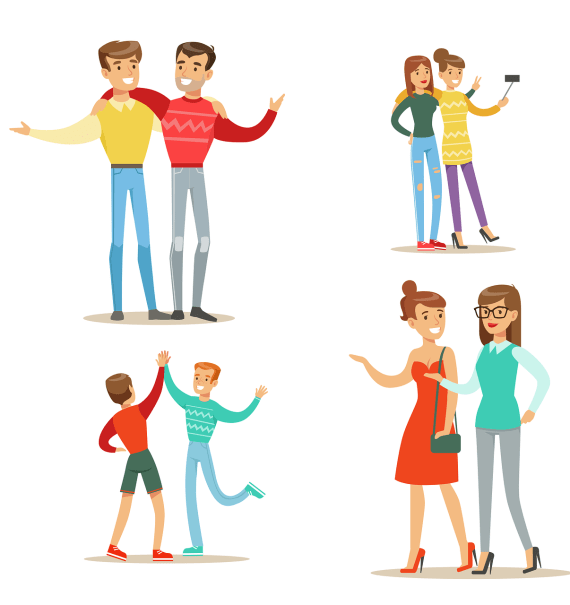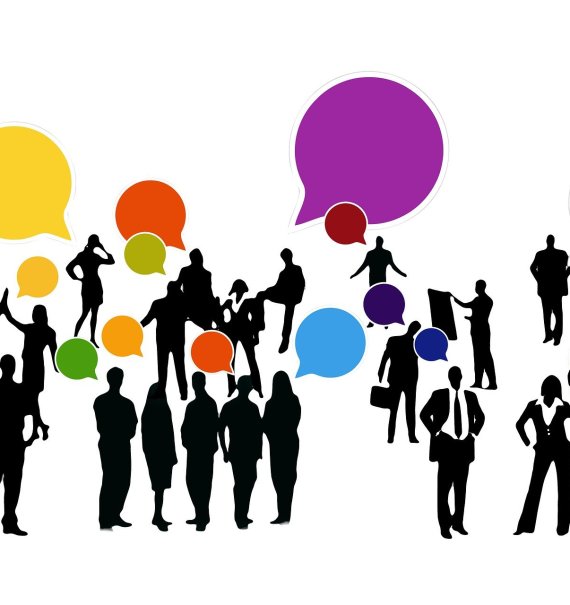Extroversion is one of the big five character traits that determine a person’s personality. It’s a character trait that measures a person’s relative level of sociability, talkativeness, outgoingness. At one end of the scale is an extravert; the extremely sociable fellow, can easily strike a conversation with anyone, feels alive in presence of social interactions and actually dreads alone time. On the other side of the scale is the introvert; this is the more reserved fellow, slow to social interactions, often short of words, feels drained when around so many people and often needs to withdraw into solitude to reenergize themselves. Such character traits are passed on to people genetically, and slightly altered during the development stages as children. This implies much of one’s personality is set by factors, in most cases beyond one’s control.
However, cultural shifts have seen the rising preference for extroversion at the expense of introversion. From tender ages, children are told they have to be more outspoken and outgoing; the teacher rewards the child the raises their hands the most to answer questions. In the teenage ages, it’s the most talkative and outgoing that are the most popular and have the most friends, in working institutions employees are urged to be more vibrant and talkative. Amidst all this, the introvert feels left out, the quieter child feels less than because they go unnoticed by the teacher due to their temperament, the reserved teenager who dreads partying and enjoys quieter hobbies feels like they are missing out on life and the soft-spoken adult employee feels like they will never get any recognition from their bosses. Society then consciously or sub-consciously sets standards for the ideal personality, in most cases standards that are not aligned with the nature of most introverts.

Sociability; Society expects you to be quick to relate to people, be magnetic and yield instant relationships, otherwise you’re shy in which case there is a problem to be fixed. You’re expected to be open in conversations, let people in. You’re expected to go to networking events and meet as many people as you can, you’re expected to go to parties and make small talk with everyone that crosses your lane, anything less of a social butterfly, then you’re probably anti-social, at least that’s the perception. The introvert, who is a bit more reserved and prefers a smaller social circle feels pressured to perform and up hold stated social ideals, or at least die trying. For that reason, most spend most of their days pushing themselves into extreme anxiety generating conditions, trying to fix what they consider broken. “step out of the comfort zone” they say. Those that eventually fail, feel depressed for not measuring up.
Talkative; Sure the ability to articulate one’s thoughts is a good measure of intelligence and a priceless life skill. However, at one point, society takes it too far; the most intelligent are perceived to be the ones with the most words. “say something” they will always tell you. In the extraverted society, people simply sitting next to each other in silence is an abnormally. Talkativeness becomes the measure of charisma and likeability. After all it’s the most talkative that are the most magnetic, at least that’s the perception. The quieter introvert who occasionally is short of words feels alienated and at times self-diagnose themselves as being shy or having social anxiety. They can’t seem to relate in a world that just can’t stop talking and can’t stand silence.
Outgoing; Ask a millennial about happiness or fun, they’ll quickly point you to the nearest bar, or club house. Their concept of it hovers around partying, booze, loud music or somewhere along those lines. That has become the base line of happiness. However, the introvert doesn’t seem to consider such as entertaining and pleasurable as the rest do. They would rather choose a quieter hobby, one which is in most cases, individual like; watching a nice movie, reading a book or indulging in a craft; writing, painting or even sport. The millennial society perceives the quieter and reserved as being shy and lifeless or one that cherishes alone time as being boring or a loner. “Get a life!” they say. It’s a perception that starts rubbing off on introverts themselves which makes them start feeling like they are (air quotes) ‘missing out on life.’ It’s because of such social pressures that most people end up conforming to standards that don’t serve them right. Introverts start partying and drinking even though they know deep down, such things are just not for them, all in the name of fitting in.

“Yet today we make room for a remarkably narrow range of personality styles. We’re told that to be great is to be bold, to be happy is to be sociable. We see ourselves in a nation of extroverts-which means that we’ve lost sight of who we really are.”
Suzan Cain in her book; ‘Quiet, the power of introverts in a world that can’t stop talking.’
All this might make the introvert feel like there is something wrong with them, if they could just be as social as Humphrey or Joy, or as charismatic as Helen everything would be fine. If they could just be ‘normal’ like everybody else. For that reason, they end up addicted to self-help or so-called pick-up artists that promise to teach you hacks that can make you very sociable and instantly magnetic.
“The dark side of self-improvement exists because deep inside many of us is an ancient belief that there is something wrong with us.” .
Suzanne Eder
But of course, it’s not that the entire self-help industry is toxic, it’s only the so-called gurus who try to sell you their own version of an ideal personality. Most revolves around the out-spoken, outgoing, charismatic social butterfly, the extrovert. This again reinforces the idea that there is something inherently wrong with you.
One could also argue that if you push yourself hard enough, long enough, then you will eventually blossom into the personality you desire. However, trying to improve yourself from such a point of view results into a vicious cycle of self-judgement and condemnation.
That said, the introvert can’t stay in their comfort zone forever. Whether pursuing career or entrepreneurship, sooner or later, your career may call for better networking, public speaking skills and leadership skills in general. Such growth will call for a certain level of discomfort. “All progress takes place outside the comfort zone.” Michael John Bobak. Then arises the self-love/satisfaction Vs the drive to self-improvement argument; lean too close to the former, and you may end-up, complacent and comfortable, hence stagnate, lean too close towards the latter, and you end up on a miserable treadmill, always comparing yourself to others and beating yourself up for not measuring up.
Just like most aspects of life, a healthy ideal doesn’t exist at either polar extremes, but rather a balance between the two; To step out of your comfort zone, and learn to be a bit more sociable, but while accepting and loving yourself the way you are the whole way. Get onto a journey of self-growth, not because you feel that there is something wrong with you, but because you can simply become a better version of yourself.

